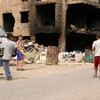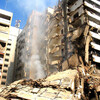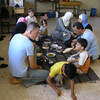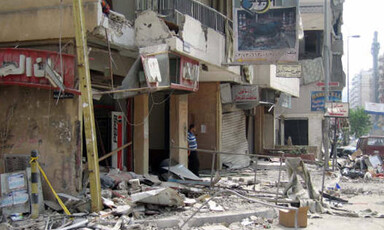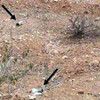
UNRWA Strongly Condemns the Killing of its Staff Member
15 August 2006
At 06:40hrs on August 14, one hour and twenty minutes before the cessation of hostilities in Lebanon, Israeli aircraft targeted a Palestinian faction in the Ein el-Hilweh refugee camp in Saida with two missiles. The destructive power of the missiles, fired into a civilian residential area, killed UNRWA staff member Mr. Abdel Saghir. Mr. Saghir, 48, had begun his shift as a sanitation labourer ten minutes earlier. He leaves behind a wife and three children. The United Nations Relief and Works Agency for Palestine Refugees (UNRWA) strongly condemns the killing of Mr. Saghir. Read more about UNRWA Strongly Condemns the Killing of its Staff Member
